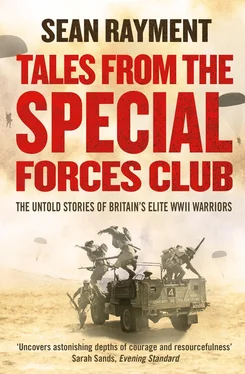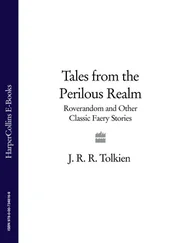‘On about the fifth day it was clear that Ron’s leg wasn’t getting any better – we had virtually no food and so there was nothing for it but to get some help. We decided to enter a village called Belica in western Macedonia. It was a risk, but we thought that the locals might help us. I have to say that by that stage we were at a pretty low ebb; we were cold, exhausted and malnourished, and we needed some food and shelter.
‘When we arrived in the village there were lots of locals filling water buckets from the stream, so we went over and filled our water bottles. I think it was obvious to them that we were soldiers, and they looked astonished to see us. We waved and smiled and walked off and were heading in the direction of some houses when this character appeared, waving his arms at us and making it quite clear that we couldn’t go any further and that it was dangerous.
‘Ron looked up at this house and saw uniformed men walking about, and they must have been Bulgar soldiers. We took this individual at his word and left the road, pushed up into the hills as fast as we could and disappeared. Fortunately no one fired at us or followed us. We went on walking for the rest of the day and came to a river flowing roughly in the direction we wanted to go, so we continued to walk beside it along a towpath. We walked on until it started getting dark. Ron’s leg was getting no better so we continued until we came across this very primitive hut, which appeared to be occupied.
‘We approached the hut cautiously and using sign language we tried to make it clear to the people inside who we were and how we had jumped off the train. But it was also clear that they didn’t want us there. After a few minutes they got up and beckoned us to come with them; they led us outside and pointed up to a hill and just kept pointing. They wanted us to push off up the hill, so off we went, feeling very dejected. But after a few hundred yards it became apparent that the path wasn’t going anywhere, so we thought bugger this and went back to the hut, and when we banged on the door for a second time the two men seemed to have had a change of heart and invited us in.
‘It was the most primitive human habitation you could imagine. It had an earth floor, with a fire burning in the middle. The smoke rose up through the thatch – it was medieval.
‘There was a cooking pot hanging by a chain from one of the roof timbers, with some water boiling in it, and that seemed to be the sole means of cooking and heating. The dwelling itself was divided by a wall and on the other side were cattle. The only furniture was a couple of little three-legged stools, wonderful things cut out of the trunk of a fir tree at a place where there were three side branches, so that you could stand it up.
‘There were no cupboards, tables or chairs. Just these two men, who I think must have been father and son. It was all very odd, but we were so tired and hungry that to us it seemed like the lap of luxury. I think they took pity on us, and they invited us to a meal which consisted of what we later discovered was called katchemak – at least that’s what we called it. The stew consisted mainly of maize flour dumped into the pot by the handful until it had piled up into a pyramid shape. The mixture was stirred until it took on the consistency of a thick porridge, and at some stage meat – mutton or pork or anything available really – would be added, and we would pick at it with our fingers. It tasted fine that night because we were so hungry and relieved that we would be spending the night somewhere dry and warm. After the food was finished they invited us to lie down by the fire and sleep, which we did with consummate ease.
‘At some stage during the night some sort of official arrived at the hut, with a rifle slung over his shoulder, shouting, “Documenti, documenti!” Word must have circulated that there were two strangers in the area.
‘We showed him our pay books, which was all we had. He looked through them but clearly couldn’t find what he was looking for. He produced a Bulgarian banknote, and along the bottom it said “Thomas de la Rue, Angleterre”, which was clearly the printers’ name, and Angleterre was the word he was looking for.
‘It then clicked that he wanted us to produce something showing Angleterre, but we had nothing. He must have trusted our word, because in the end he made a series of gestures which showed us that he was satisfied.’
Just after dawn Jimmy and Ron left the hut with their new friends, walked along the river they had followed the previous day, up through a deserted village and into a large cave which was occupied by Chetniks. ¶
The commander of the group of 30 guerrilla fighters was a Serb regular Army colonel called Stoyan Markovic. Markovic had learnt English from a book and was able to make himself understood to the two British soldiers. He explained to Jimmy and Ron that they were welcome to stay, and said he hoped that they would be prepared to join his band of fighters.
Конец ознакомительного фрагмента.
Текст предоставлен ООО «ЛитРес».
Прочитайте эту книгу целиком, купив полную легальную версию на ЛитРес.
Безопасно оплатить книгу можно банковской картой Visa, MasterCard, Maestro, со счета мобильного телефона, с платежного терминала, в салоне МТС или Связной, через PayPal, WebMoney, Яндекс.Деньги, QIWI Кошелек, бонусными картами или другим удобным Вам способом.












